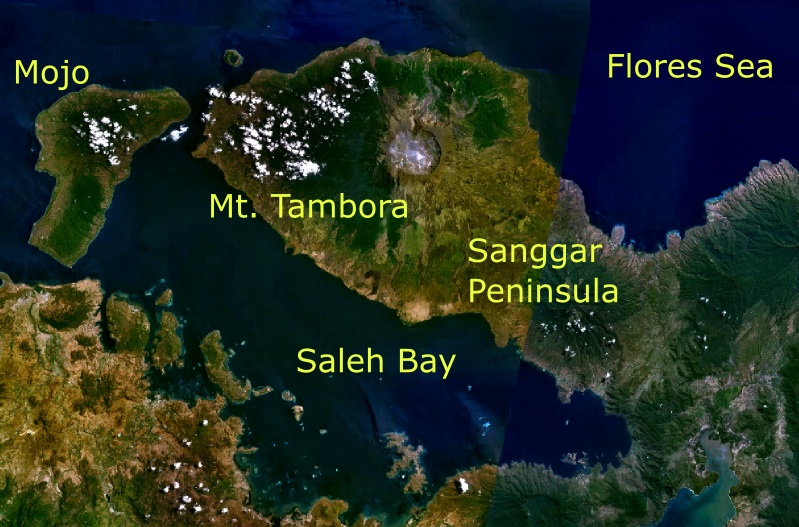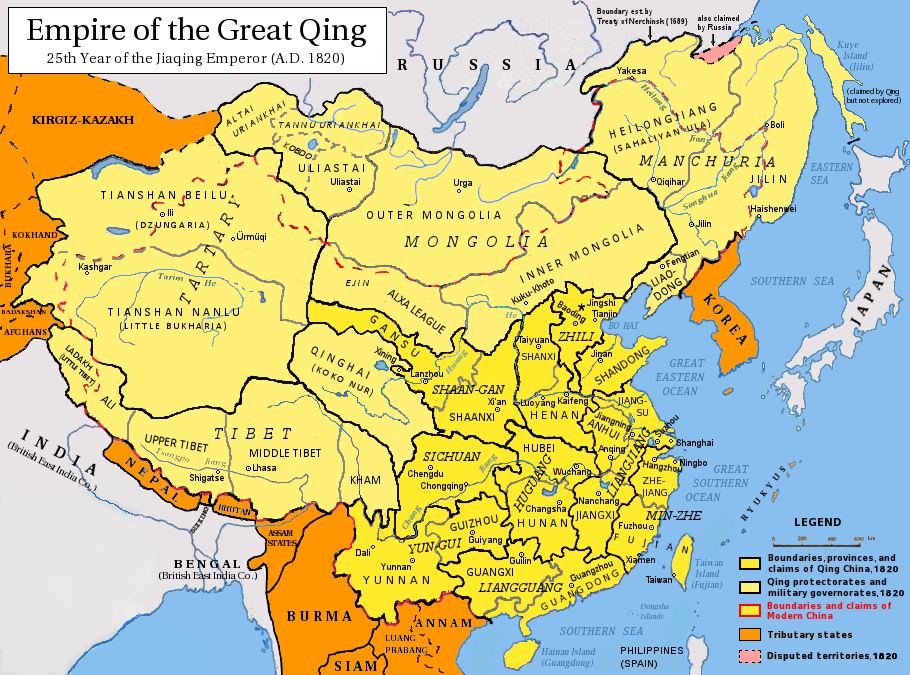|
Year Without Summer
The year 1816 is known as the Year Without a Summer because of severe climate abnormalities that caused average global temperatures to decrease by . Summer temperatures in Europe were the coldest on record between the years of 1766–2000. This resulted in major food shortages across the Northern Hemisphere. Evidence suggests that the anomaly was predominantly a volcanic winter event caused by the massive 1815 eruption of Mount Tambora in April in the Dutch East Indies (known today as Indonesia). This eruption was the largest in at least 1,300 years (after the hypothesized eruption causing the volcanic winter of 536), and was perhaps exacerbated by the 1814 eruption of Mayon in the Philippines. Description The Year Without a Summer was an agricultural disaster. Historian John D. Post has called this "the last great subsistence crisis in the Western world".Evans, RoberBlast from the Past ''Smithsonian Magazine''. July 2002, p. 2 The climatic aberrations of 1816 had their greates ... [...More Info...] [...Related Items...] OR: [Wikipedia] [Google] [Baidu] |
Mount Tambora
Mount Tambora, or Tomboro, is an active stratovolcano in West Nusa Tenggara, Indonesia. Located on Sumbawa in the Lesser Sunda Islands, it was formed by the active subduction zones beneath it. Before 1815, its elevation reached more than high, making it one of the tallest peaks in the Indonesian archipelago. Tambora violently erupted in a series of eruptions beginning 5 April, 1815, culminating in the largest eruption in recorded human history and the largest of the Holocene (10,000 years ago to present). The magma chamber under Tambora had been drained by previous eruptions and underwent several centuries of dormancy as it refilled. Volcanic activity reached a peak that year, culminating in an explosive eruption. The explosion was heard on Sumatra island, more than away. Heavy volcanic ash rains were observed as far away as Borneo, Sulawesi, Java, and Maluku islands, and the maximum elevation of Tambora was reduced from about to . Although estimates vary, the death ... [...More Info...] [...Related Items...] OR: [Wikipedia] [Google] [Baidu] |
Monsoon
A monsoon () is traditionally a seasonal reversing wind accompanied by corresponding changes in precipitation but is now used to describe seasonal changes in atmospheric circulation and precipitation associated with annual latitudinal oscillation of the Intertropical Convergence Zone (ITCZ) between its limits to the north and south of the equator. Usually, the term monsoon is used to refer to the rainy phase of a seasonally changing pattern, although technically there is also a dry phase. The term is also sometimes used to describe locally heavy but short-term rains. The major monsoon systems of the world consist of the West African, Asia–Australian, the North American, and South American monsoons. The term was first used in English in British India and neighboring countries to refer to the big seasonal winds blowing from the Bay of Bengal and Arabian Sea in the southwest bringing heavy rainfall to the area. Etymology The etymology of the word monsoon is not wholl ... [...More Info...] [...Related Items...] OR: [Wikipedia] [Google] [Baidu] |
Ganges
The Ganges ( ) (in India: Ganga ( ); in Bangladesh: Padma ( )). "The Ganges Basin, known in India as the Ganga and in Bangladesh as the Padma, is an international river to which India, Bangladesh, Nepal and China are the riparian states." is a trans-boundary river of Asia which flows through India and Bangladesh. The river rises in the western Himalayas in the Indian state of Uttarakhand. It flows south and east through the Gangetic plain of North India, receiving the right-bank tributary, the Yamuna, which also rises in the western Indian Himalayas, and several left-bank tributaries from Nepal that account for the bulk of its flow. In West Bengal state, India, a feeder canal taking off from its right bank diverts 50% of its flow southwards, artificially connecting it to the Hooghly river. The Ganges continues into Bangladesh, its name changing to the Padma. It is then joined by the Jamuna, the lower stream of the Brahmaputra, and eventually the Meghna, forming the major ... [...More Info...] [...Related Items...] OR: [Wikipedia] [Google] [Baidu] |
Cholera
Cholera is an infection of the small intestine by some strains of the bacterium ''Vibrio cholerae''. Symptoms may range from none, to mild, to severe. The classic symptom is large amounts of watery diarrhea that lasts a few days. Vomiting and muscle cramps may also occur. Diarrhea can be so severe that it leads within hours to severe dehydration and electrolyte imbalance. This may result in sunken eyes, cold skin, decreased skin elasticity, and wrinkling of the hands and feet. Dehydration can cause the skin to turn bluish. Symptoms start two hours to five days after exposure. Cholera is caused by a number of types of ''Vibrio cholerae'', with some types producing more severe disease than others. It is spread mostly by unsafe water and unsafe food that has been contaminated with human feces containing the bacteria. Undercooked shellfish is a common source. Humans are the only known host for the bacteria. Risk factors for the disease include poor sanitation, not enough clea ... [...More Info...] [...Related Items...] OR: [Wikipedia] [Google] [Baidu] |
India
India, officially the Republic of India (Hindi: ), is a country in South Asia. It is the seventh-largest country by area, the second-most populous country, and the most populous democracy in the world. Bounded by the Indian Ocean on the south, the Arabian Sea on the southwest, and the Bay of Bengal on the southeast, it shares land borders with Pakistan to the west; China, Nepal, and Bhutan to the north; and Bangladesh and Myanmar to the east. In the Indian Ocean, India is in the vicinity of Sri Lanka and the Maldives; its Andaman and Nicobar Islands share a maritime border with Thailand, Myanmar, and Indonesia. Modern humans arrived on the Indian subcontinent from Africa no later than 55,000 years ago., "Y-Chromosome and Mt-DNA data support the colonization of South Asia by modern humans originating in Africa. ... Coalescence dates for most non-European populations average to between 73–55 ka.", "Modern human beings—''Homo sapiens''—originated in Africa. Then, int ... [...More Info...] [...Related Items...] OR: [Wikipedia] [Google] [Baidu] |
Changhua
Changhua (Hokkien POJ: ''Chiong-hòa'' or ''Chiang-hòa''), officially known as Changhua City, is a county-administered city and the county seat of Changhua County in Taiwan Province of the Republic of China. For many centuries the site was home to a settlement of Babuza people, a coastal tribe of Taiwanese aborigines. Changhua city is ranked first by population among county-administered cities. It is part of the Taichung–Changhua metropolitan area, which is the second largest in Taiwan. Historically, Changhua city was a base for the Han Chinese when they invaded Taiwan against the Taiwanese aborigines, constructing a fortress built out of bamboo. Changhua has a nickname of "Bamboo Town". Changhua is best known for its landmark Great Buddha Statue of Baguashan. At 26 metres tall, the statue sits atop Bagua Mountain overlooking the city. The main walkway up to the giant is lined with statues of figures from Buddhist lore. Another site of interest is Taiwan's oldest temple ... [...More Info...] [...Related Items...] OR: [Wikipedia] [Google] [Baidu] |
Miaoli County
Miaoli County (Mandarin Pinyin: ''miáo lì xiàn''; Hakka PFS: ''Mèu-li̍t-yen''; Hokkien POJ: ''Biâu-le̍k-koān'' or ''Miâu-le̍k-koān'') is a county in western Taiwan. Miaoli is adjacent with Hsinchu County and Hsinchu City to the north, Taichung to the south, and borders the Taiwan Strait to the west. Miaoli is classified as a county in central Taiwan by the National Development Council, while the Taiwan Central Weather Bureau classifies Miaoli as a county in northern Taiwan. Miaoli City is the capital of the county, and is also known as "Mountain Town", owing to the number of mountains nearby, making it a destination for hiking. Name The name ''Miaoli'' was coined by matching Hakka Chinese sound for the characters 貓貍 to the phonetically approximate ''Pali'' (''Bari'') from the Taokas language. The resulting word () is a widespread but non-orthodox variant referring to Viverridae. In 1889, during late Qing rule, the name was modified from various forms () to its ... [...More Info...] [...Related Items...] OR: [Wikipedia] [Google] [Baidu] |
Hsinchu
Hsinchu (, Chinese: 新竹, Pinyin: ''Xīnzhú'', Wade–Giles: ''Hsin¹-chu²'') is a city located in northwestern Taiwan. It is the most populous city in Taiwan Province not among the special municipalities, with estimated 450,655 inhabitants. Hsinchu is a coastal city bordering the Taiwan Strait to the west, Hsinchu County to the north and east, and Miaoli County to the south. Nicknamed the ''Windy City'' for its strong northeastern monsoon during the autumn and winter seasons. The area was originally settled by the Austronesian Taiwanese indigenous peoples, with the settlement being named "Tek-kham" by the Hoklo immigrants. The city was founded by Han Chinese settlers in 1711, and renamed to its current form in 1878. During the Japanese Era, the city was the seat of Shinchiku Prefecture, named after the city. The prefecture encompassed present-day Hsinchu City and County, as well as entire Taoyuan and Miaoli. After the ROC rule in 1945, the urban area of Hsinchu wa ... [...More Info...] [...Related Items...] OR: [Wikipedia] [Google] [Baidu] |
Taiwan Under Qing Rule
Taiwan under Qing rule refers to the rule of the Qing dynasty over the island of Taiwan from 1683 to 1895. The Qing dynasty sent an army led by general Shi Lang and defeated the Ming loyalist Kingdom of Tungning in 1683. Taiwan was formally annexed in April 1684. Taiwan was governed as Taiwan Prefecture of Fujian Province until the establishment of the Fujian–Taiwan Province in 1887. The Qing dynasty extended its control of Taiwan across the western coast of Taiwan, the western plains, and northeastern Taiwan over the 18th and 19th centuries. The Qing government did not pursue an active colonization policy and restricted Han migration to Taiwan for the majority of its rule out of fear of rebellion and conflict with the Taiwanese indigenous peoples. Han migrants were barred from settling on indigenous land and markers were used to delineate the boundaries of settled areas and mountain dwelling aborigines. Despite Qing restrictions, settlers continued to enter Taiwan and push t ... [...More Info...] [...Related Items...] OR: [Wikipedia] [Google] [Baidu] |
Anhui
Anhui , (; formerly romanized as Anhwei) is a landlocked province of the People's Republic of China, part of the East China region. Its provincial capital and largest city is Hefei. The province is located across the basins of the Yangtze River and the Huai River, bordering Jiangsu to the east, Zhejiang to the southeast, Jiangxi to the south, Hubei to the southwest, Henan to the northwest, and Shandong for a short section in the north. With a population of 63.65 million, Anhui is the 8th most populous province in China. It is the 22nd largest Chinese province based on area, and the 12th most densely-populated region of all 34 Chinese provincial regions. Anhui's population is mostly composed of Han Chinese. Languages spoken within the province include Jianghuai Mandarin, Wu, Hui, Gan and small portion of Zhongyuan Mandarin Chinese. The name "Anhui" derives from the names of two cities: Anqing and Huizhou (now Huangshan City). The abbreviation for Anhui is "" after the histori ... [...More Info...] [...Related Items...] OR: [Wikipedia] [Google] [Baidu] |
Jiangxi
Jiangxi (; ; formerly romanized as Kiangsi or Chianghsi) is a landlocked province in the east of the People's Republic of China. Its major cities include Nanchang and Jiujiang. Spanning from the banks of the Yangtze river in the north into hillier areas in the south and east, it shares a border with Anhui to the north, Zhejiang to the northeast, Fujian to the east, Guangdong to the south, Hunan to the west, and Hubei to the northwest. The name "Jiangxi" is derived from the circuit administrated under the Tang dynasty in 733, Jiangnanxidao (; Gan: Kongnomsitau). The abbreviation for Jiangxi is "" (; Gan: Gōm), for the Gan River which runs across from the south to the north and flows into the Yangtze River. Jiangxi is also alternately called ''Ganpo Dadi'' () which literally means the "Great Land of Gan and Po". After the fall of the Qing dynasty, Jiangxi became one of the earliest bases for the Communists and many peasants were recruited to join the growing people's ... [...More Info...] [...Related Items...] OR: [Wikipedia] [Google] [Baidu] |
Mixed Precipitation
Rain and snow mixed is precipitation composed of a mixture of rain and partially melted snow Snow comprises individual ice crystals that grow while suspended in the atmosphere—usually within clouds—and then fall, accumulating on the ground where they undergo further changes. It consists of frozen crystalline water throughout .... Unlike ice pellets, which are hard, and freezing rain, which is fluid until striking an object where it fully freezes, this precipitation is soft and translucent, but it contains some traces of ice crystals from partially fused snowflakes, also called slush. In any one location, it usually occurs briefly as a transition phase from rain to snow or vice versa, but hits the surface before fully transforming. Its METAR code is RASN or SNRA. Terminology This precipitation type is commonly known as sleet in most Commonwealth countries. However, the United States National Weather Service uses the term ''sleet'' to refer to ice pellets instead. ... [...More Info...] [...Related Items...] OR: [Wikipedia] [Google] [Baidu] |










